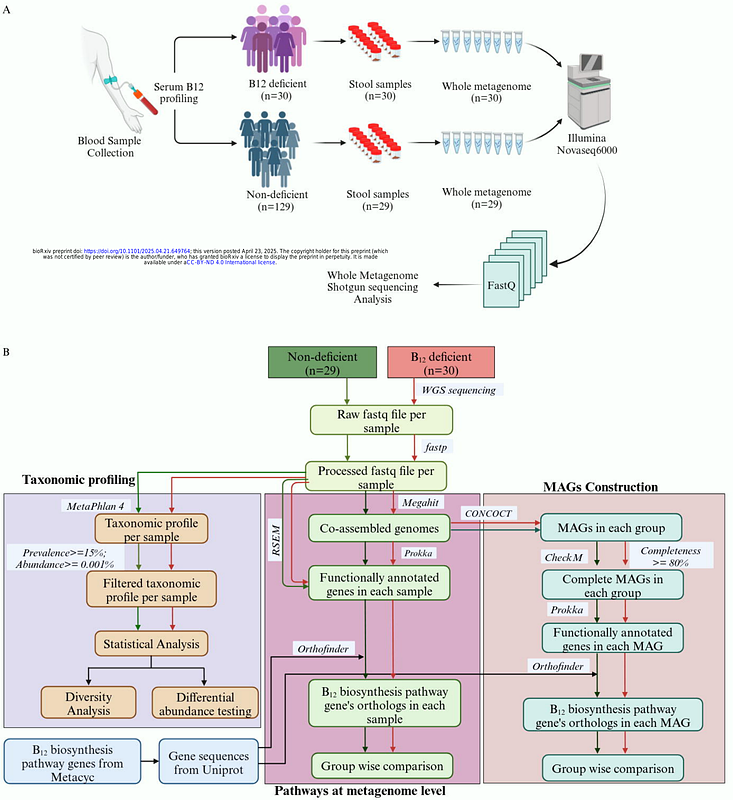The abundance of potential B12 producers in gut microbiome is inversely associated with serum vitamin B12 levels: A putative role of Host-microbiome feedback regulation

The abundance of potential B12 producers in gut microbiome is inversely associated with serum vitamin B12 levels: A putative role of Host-microbiome feedback regulation
Chandel, N.; Patel, P.; Somvanshi, P. R.; Verma, A. K.; Thakur, V.
AbstractBackground: The human gut microbiome is a natural source of essential micronutrients like B-vitamins, which are utilized by both the host and other community members. The distribution of prevalence and abundance of known B-vitamin producers in Indian cohorts was reported to be marginally higher than that of the entire gut microbiome. Objective: To test whether the presence of B-vitamin producers/biosynthetic pathways translates into serum B-vitamin levels, taking B12 as a case example. Methods: Fecal samples were collected from non-deficient (n=29) and B12 deficient (n=30) children from a tribal region of central India. Whole metagenomic DNA was extracted, sequenced, and analyzed for taxonomic profiling and diversity comparisons. Differentially abundant taxa between two groups were identified. The prevalence and abundance of potential B12 producers were compared, and their association with serum B12 level was established. Results: A comparison of within-sample diversity between the two groups did not show any difference; however, between-sample diversity was significantly less in the B12 deficient group. Differential abundance testing also reflected changes in microbiome structure upon B12 deficiency, where an increased abundance of B12 transporter-carrying Bacteroides thetaiotaomicron, a few pathogenic species, and ten known B12 producers was observed in the deficient group. Potential B12 producers were also significantly prevalent and abundant in the deficient group. Their cumulative abundance was also significantly higher in the deficient group and showed a negative association with serum B12 levels. Conclusion: B12 absorption in the colon supports the idea that gut microbes contribute to its supply. Higher potential B12 producers in the deficient group suggest an adaptive mechanism by the gut microbiome to meet the communitys B12 requirements. Even at low bioavailability, the gut microbiome appears to selectively promote the growth of B12 producers either due to selective pressure or due to the hosts efforts to maintain B12 homeostasis, indicating host-microbiome feedback regulation.